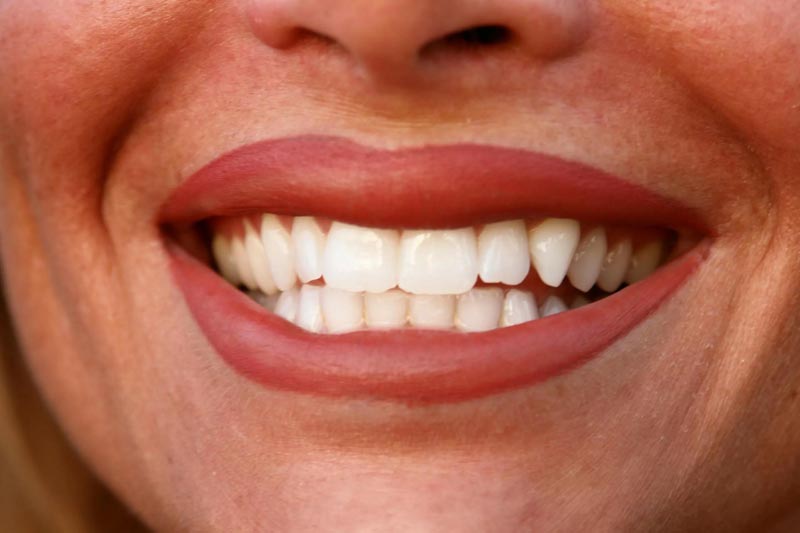Your Teeth Impact How You Talk

Humans are the most intelligent animals on the face of the Earth. Not only that, but we are also one of the most social beings on the planet. We strive for interpersonal communication between one another. Humans look for various ways to communicate, and human speech is the most vital aspect of all human communication.
We don’t just use communication to talk with your friends, family, coworkers, and strangers. We use communication to help express ourselves through singing, acting, and much more. While speech is such an integral part of who we are as a species, not too many take the time to think about how we create the sounds that make up human speech. We often take it for granted. But several things affect how you talk.
Human speech is a complicated process. To create certain phonetic sounds, your body uses a combination of your vocal cords, lips, tongue, and teeth. That’s right. Your teeth do much more than just looking pretty and helping you chew. Your teeth are an integral part of creating human speech. If you are missing teeth, or they are crooked or crowded, the sounds coming from your mouth will be incorrect. But how do your teeth affect how you talk?
Cosmetic & Family Dentistry of Las Colinas wants to educate our patients about how important their teeth are. Your teeth play a substantial role in not only helping you eat but also helping you talk.
What Sounds Your Teeth Help With
There are many different sounds that your mouth makes to form human speech. Some sounds can only be made in the back of your throat with your vocal cords. Some are made thanks to the way your tongue moves. Others require your lips to form in a certain way, while others need your teeth.
Strident sounds are the sounds your mouth makes that require friction of fast airflow being bushed against your teeth to produce sound. These are sounds that rely on teamwork between your teeth and tongue, or they involve your lips curling or pressing against your teeth. Some of these sounds include:
- “f” like in “fish.”
- “v” like in “vet.”
- “s” like in “sew.”
- “z” like in “zoo.”
- “ch” like in “chin.”
- The “g” sound like in “gym.”
- “sh” like in “shoe.”
- The “th” like in “thirst.”
There are more examples, such as those that require your teeth to be aligned perfectly to accurately pronounce them. Whenever your teeth are missing or misaligned, you may notice that the sounds don’t come out correctly.
Think of a child and their baby teeth. Your child may be able to properly articulate a sound before they lose their baby teeth, but once that tooth falls out, they can no longer articulate it correctly. However, they should maintain that skill, so when their adult tooth grows in, they will still be able to properly enunciate the sound.
Teeth Conditions That Affect Speech
While children are often the most notable cases of affected speech, several different conditions can also affect an adult’s speech, as well. Some of these conditions can be easily remedied. Some of these conditions are:
- Missing Teeth: As we mentioned earlier, when your child first loses their baby teeth, the way they enunciate words changes. However, there are instances when adults lose their permanent teeth. To some, this may not be a big deal, but it can drastically alter the way you speak.
- Malocclusion: Malocclusions occurs when there is a misalignment problem with your teeth, such as crowded teeth, crossbite, over- or underbite, or open bite. A study by researchers from the University of Bristol Dental School found that those with malocclusion struggled more with pronouncing dental sounds than those with normal tooth alignment.
- Bruxism: Bruxism is the act of habitually grinding your teeth, whether intentional or not. This grinding of your teeth often damages your jaw, which negatively impacts how clear you speak.
Speaking Confidence
Your smile is one of the first things people notice about you. A warm and welcoming smile can give off a great first impression. However, many people are self-conscious about their teeth. More than half of Americans feel insecure about their smiles. Whether it’s because their teeth are crowded or crooked, or they believe their smile could be brighter, many people avoid showing their smiles.
People often talk quietly or mumble to hide their dental flaws. They will do whatever they can to hide or cover their mouth. This often negatively impacts your speech. By muzzling yourself or changing how wide you open your mouth, you speak unnaturally. If you do this repeatedly, the muscles in your mouth adjust and adopt this new way of speaking. If you continue to do this for many years, these muscles become rigid and inflexible, staying this way. Your speech pattern will be forever changed.
Treatments
If you suffer from a condition that affects the way you speak, there are often many treatment options offered at Cosmetic & Family Dentistry of Las Colinas that can help you not only speak clearly but feel confident about your smile, too. Some of these include:
- Braces
- Invisalign
- Dentures
- Veneers
- Dental implants
- Dental bridges
- Teeth whitening
Many of these treatments help straighten your teeth. When your teeth are aligned correctly, your mouth can flawlessly make sounds. Dentures, implants, and bridges help replace or fill the gaps in the mouth where a tooth is supposed to be. Veneers and teeth whitening help improve the overall aesthetic of your smile, boosting your confidence in your smile.
Your teeth don’t just exist to help you chew up your food. They help you make the sounds needed to effectively communicate. Your teeth pair with your tongue, lips, and vocal cords to effectively create noises. If you don’t properly care for your teeth, you don’t just put yourself at risk of gum disease and other conditions, but you may also affect the way you speak. Cosmetic & Family Dentistry of Las Colinas is here to help you better care for your oral hygiene.
- Awareness16
- Bad Breath1
- Bone Grafting1
- Braces4
- Causes, Symptoms, And Treatments6
- Cavities5
- Chewing Gum1
- Cosmetic Dentistry of Las Colinas15
- COVID-192
- Deep Cleaning7
- Dental Anxiety1
- Dental Bridge2
- Dental Care27
- Dental Cleaning6
- Dental Crown1
- Dental Filling1
- Dental Health24
- Dental Implants6
- Dental Sedation1
- Dental Visit1
- Dental X Ray3
- Floss1
- Gum Dieseases4
- Injury1
- Insurance1
- Invisalign8
- Oral Cancer1
- Oral Hygiene24
- Root Canal9
- Sleep Apnea2
- Tartar1
- Teeth19
- Thanksgiving1
- TMJ1
- Tongue1
- Veneers2
- White Teeth12
Get Your Best Smile With Us
